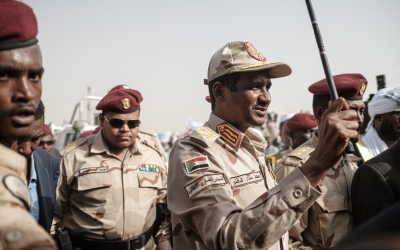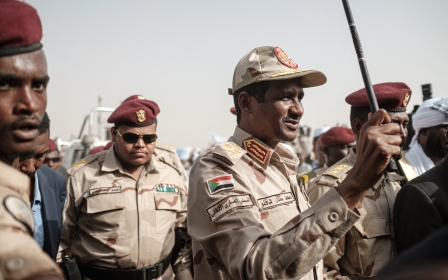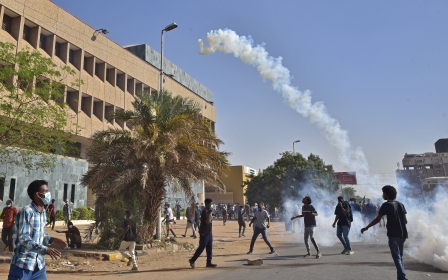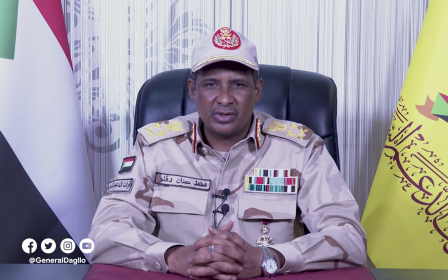Sudan: Nearly 50 dead in Darfur as inter-communal violence flares

Close to 50 people have been killed in the latest outbreak of inter-communal violence in Sudan's Darfur region, officials said on Monday.
"The violence began with an argument and it spiralled into killing six people on Saturday and then on Sunday more than 40 people were killed," West Darfur governor Khamis Abdallah told AFP.
The Doctors' Committee, an independent pro-democracy union, said that 48 people were killed in the Krink area of Darfur by live ammunition.
The fighting followed a financial dispute late on Saturday between two people in the Krinding camp for displaced persons in West Darfur province, said Adam Regal, spokesman for the General Coordination for Refugees and Displaced in Darfur.
Arab fighters known as Popular Defence Forces attacked the camp early on Sunday, torching and looting properties, Regal told reporters.
The intense clashes between Arab tribes and those from other African groups prompted the government to send troops into the area.
Over 6,000 people are thought to have been displaced by the fighting. A third of them have fled to neighbouring Chad.
Humanitarian aid workers find themselves "restricted" in West Darfur, said the United Nations, while the inhabitants need "food, shelter and access to water and health services".
Darfur, a vast region that has long been beset by fighting caused in part by territorial disputes, government repression and access to water sources, has experienced a long war that has left at least 300,000 people dead and 2.5 million displaced since 2003, according to the UN.
The Janjaweed militias used by the government of former autocrat Omar al-Bashir to quash dissent in Darfur morphed into one of the most powerful groups in Sudan today, the Rapid Support Forces (RSF).
The militia's commander, General Mohamed Hamdan Dagalo, widely known as Hemeti, is now deputy to de facto head of state General Abdel Fattah al-Burhan.
Khartoum protests met with tear gas
The violence in Darfur comes as pro-democracy protesters took to the streets of the capital Khartoum and several other cities across Sudan on Monday. They were met by the police and militia forces, who fired tear gas at them.
The demonstrators are protesting the 25 October military coup that displaced the civilian government of Prime Minister Abdalla Hamdok, and the 21 November deal that reinstated Hamdok as part of an administration dominated by officials from the days of Bashir.
Sources in Khartoum told MEE that Hamdok was considering his position this week, with the 21 November deal heavily limiting the extent to which he can do the job he said he would do.
Seen as being on the side of the people following the 25 October coup, Hamdok's decision to rejoin the military-led administration has infuriated many of his former backers.
Middle East Eye delivers independent and unrivalled coverage and analysis of the Middle East, North Africa and beyond. To learn more about republishing this content and the associated fees, please fill out this form. More about MEE can be found here.





